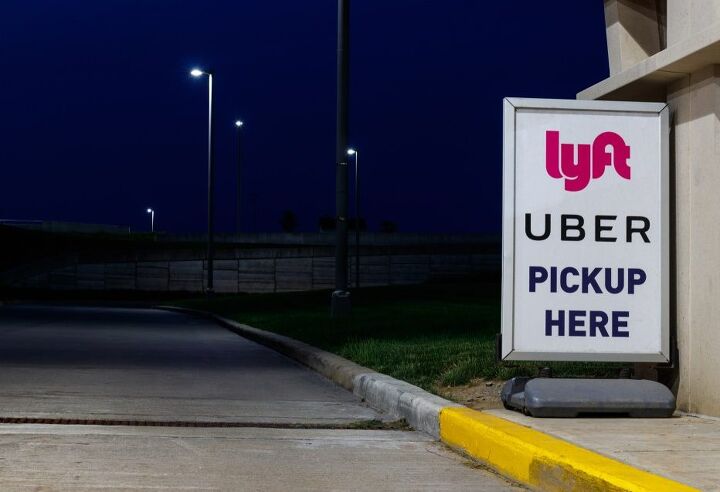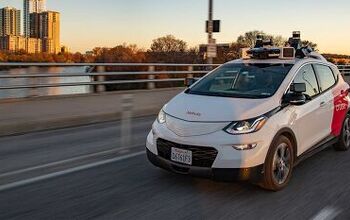Uber Reportedly Wants to Acquire Grubhub

Uber Technologies has reportedly made an offer to buy Grubhub — a food delivery service that links local restaurants directly to customers via a convenient app. Considering Uber Eats is as unprofitable as the company’s core ride-haling business, dropping a bunch of money to acquire a similar business seems silly… until you realize Grubhub is pretty much the only food-delivery outlet to occasionally turn a profit.
Buying up the only legitimate threat to your side business could be wise, even if it’s also somewhat monopolistic, but large, unprofitable tech entities with slick-sounding business plans and massive stock valuation seem bulletproof right now. They can buy up whatever outfits they want and nobody bats an eyelash until an isolated incident pops up that the media can temporarily harp on.
Even with the coronavirus rattling Uber’s share price in March, with ride frequencies more than halved in major metropolitan areas around the globe, its value crept back up in subsequent months. The company also enacted cost-cutting measures, eliminating 3,700 jobs and shuttering 180 driver service centers, with more cuts presumed to follow later this year. While dropping a few billion on Grubhub seems at odds with corporate thriftiness, it may prove beneficial in the long term — especially with investors heaping pressure on Uber to provide evidence it can someday become routinely profitable.
According to Bloomberg, inside sources say discussions are ongoing, with no deal in place. A possible agreement could be finalized by the end of May if everything goes smoothly.
Grubhub, which has done okay during the pandemic as hungry people stay indoors (or can’t go to restaurants due to government mandates), witnessed its shares rise by as much as 37 percent after the New York Stock Exchange was temporarily halted over a “technical issue” last week. It took a hit last March, but the coronavirus ultimately worked in its favor, driving its share price beyond pre-COVID levels. Grubhub is currently valued at around $5 billion.
Uber’s market recovery has been less impressive, though it’s still interesting when you consider it lost $8.5 billion in 2019 and sees little chance of changing that in 2020. It’s still worth a whopping $57 billion.
From Bloomberg:
Uber is shuttering its own food-delivery unit, Uber Eats, in seven countries where the service has proven unpopular, it said last week. Those markets represented 1 percent of Uber Eats gross bookings and 4 percent of the business’s adjusted losses before interest, taxes and depreciation for the first quarter of 2020, the company said.
The Wall Street Journal also reported Tuesday on Uber’s approach to Grubhub.
Uber’s ride-hailing business has been hammered by the global pandemic, but delivering meals has helped the San Francisco-based company drive sales as people shelter in place. Still, the food delivery industry remains widely unprofitable, even as people rely on delivery to stay in their homes.
Uber also faces increasing pressure from regulators. The company’s business model is basically incompatible with California’s new gig-worker law (Assembly Bill 5) that makes it harder for the company to classify drivers as independent contractors. The Golden State had hoped to protect the workforce by not allowing companies to abuse independent contractors (a widespread issue warranting legitimate concern), but, as is often the case with regulations, complications cropped up after it was enacted in January. The law effectively forces companies to classify gig workers as fully fledged employees — entitled to a minimum wage, overtime, and benefits. Unfortunately, the shift resulted in fewer overall jobs while making some freelance professions technically illegal.
Uber was also kicked out of London after the city freaked out over isolated violent crimes relating to drivers. Other cities have banned the service for contributing to urban traffic congestion and presumed privacy vulnerabilities within the app.
These are severe headwinds, and yet Uber’s current plan is to have its first profitable year in 2021. Seeing the mounting pressure to do better, CEO Dara Khosrowshahi pushed that timeline up a bit in February by saying he was challenging staff to finally earn some money in Q4 of 2020.
[Image: Jonathan Weiss/Shutterstock]

A staunch consumer advocate tracking industry trends and regulation. Before joining TTAC, Matt spent a decade working for marketing and research firms based in NYC. Clients included several of the world’s largest automakers, global tire brands, and aftermarket part suppliers. Dissatisfied with the corporate world and resentful of having to wear suits everyday, he pivoted to writing about cars. Since then, that man has become an ardent supporter of the right-to-repair movement, been interviewed on the auto industry by national radio broadcasts, driven more rental cars than anyone ever should, participated in amateur rallying events, and received the requisite minimum training as sanctioned by the SCCA. Handy with a wrench, Matt grew up surrounded by Detroit auto workers and managed to get a pizza delivery job before he was legally eligible. He later found himself driving box trucks through Manhattan, guaranteeing future sympathy for actual truckers. He continues to conduct research pertaining to the automotive sector as an independent contractor and has since moved back to his native Michigan, closer to where the cars are born. A contrarian, Matt claims to prefer understeer — stating that front and all-wheel drive vehicles cater best to his driving style.
More by Matt Posky
Latest Car Reviews
Read moreLatest Product Reviews
Read moreRecent Comments
- Pig_Iron This message is for Matthew Guy. I just want to say thank you for the photo article titled Tailgate Party: Ford Talks Truck Innovations. It was really interesting. I did not see on the home page and almost would have missed it. I think it should be posted like Corey's Cadillac series. 🙂
- Analoggrotto Hyundai GDI engines do not require such pathetic bandaids.
- Slavuta They rounded the back, which I don't like. And inside I don't like oval shapes
- Analoggrotto Great Value Seventy : The best vehicle in it's class has just taken an incremental quantum leap towards cosmic perfection. Just like it's great forebear, the Pony Coupe of 1979 which invented the sportscar wedge shape and was copied by the Mercedes C111, this Genesis was copied by Lexus back in 1998 for the RX, and again by BMW in the year of 1999 for the X5, remember the M Class from the Jurassic Park movie? Well it too is a copy of some Hyundai luxury vehicles. But here today you can see that the de facto #1 luxury SUV in the industry remains at the top, the envy of every drawing board, and pentagon data analyst as a pure statement of the finest automotive design. Come on down to your local Genesis dealership today and experience acronymic affluence like never before.
- SCE to AUX Figure 160 miles EPA if it came here, minus the usual deductions.It would be a dud in the US market.


































Comments
Join the conversation
There is a significant backlash against delivery services - especially Uber Eats - in both Toronto and Washington, and I would expect elsewhere. Pay delivery services a 20-30% commission was a nuisance when delivery was a niche business and restaurants could look at it as a way attract dine-inn trade, but not any more. Restaurants are now screaming that they can't afford these fees, and local politicians are at least listening. Consumers claim to be sympathetic, but who knows if that will lead to action. In both cities, people are publishing the rates charged by the various delivery services, and Uber Eats comes across as significantly the most expensive, which draws the obvious public opprobrium. I have seen/read of a number of restaurants that are organizing their own delivery, albeit within a limited area and/or encouraging consumers to use lower-cost services and especially to avoid Uber Eats. All of which suggests that the higher profile of food delivery services may not do them any good, at least in the near term.
This is like a meth addict moving in with a heroin junky because both are three months behind on the rent.